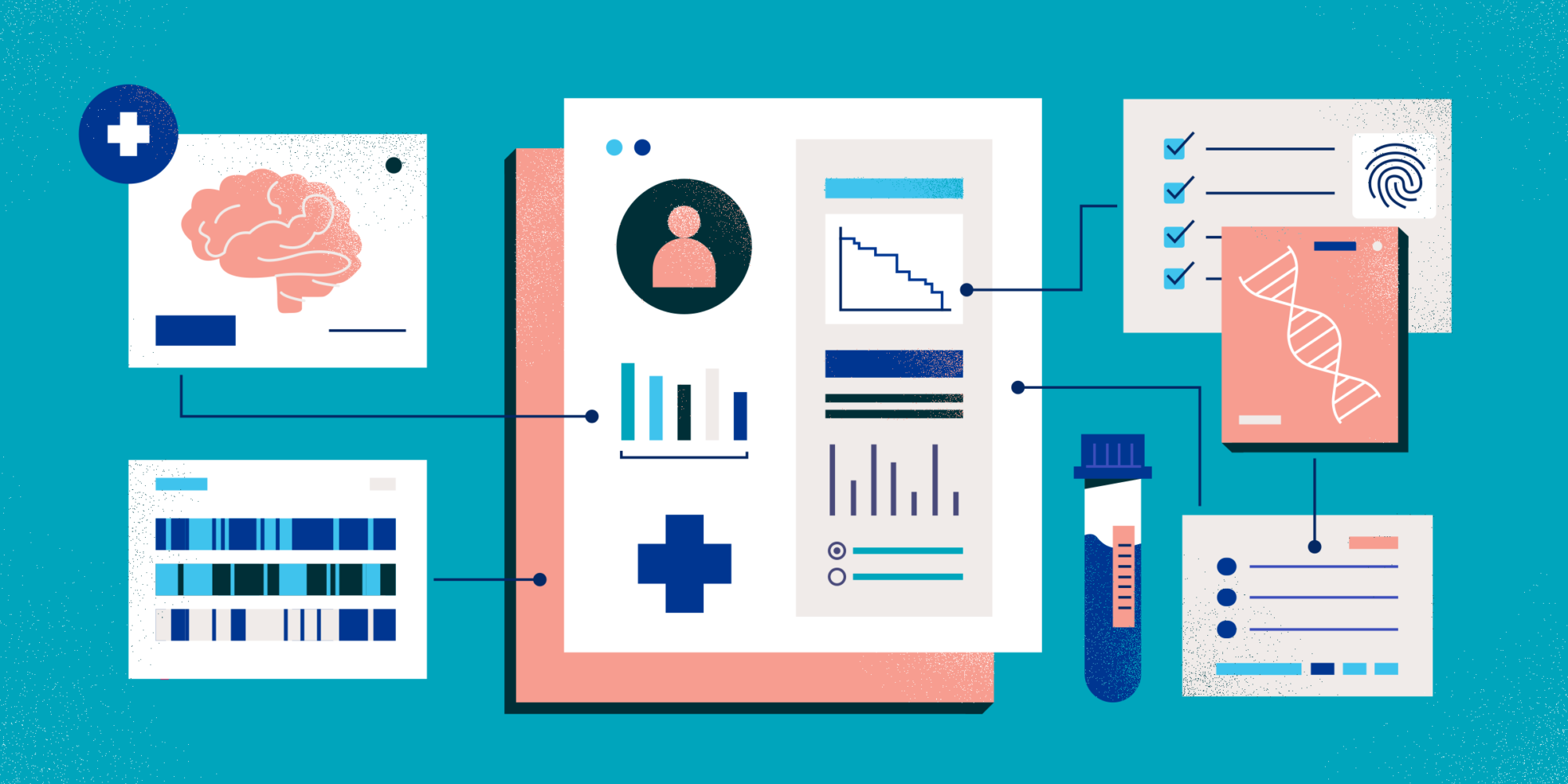By Giselle Trinidad
Precision medicine, commonly referred to as personalized medicine or precision healthcare, has been enhancing patient care in a number of ways. In 2015, President Obama announced during the State of the Union that his administration would be launching the Precision Medicine Initiative “to enable a new era of medicine through research, technology, and policies that empower patients, researchers, and providers to work together toward development of individualized care” (Office of Digital Strategy, n.d). This is significant because it pushes toward more effective treatments while simultaneously promoting inter-agency collaboration. Agencies such as the Food and Drug Administration, the National Institutes of Health, and the Office of the National Coordinator can bridge quality patient care by extensively comprehending diseases, providing safe treatment options, and improving electronic health records.
Personalized medicine differs from traditional means of delivering healthcare because it tailors targeted treatment options that are specific to the patient’s needs as opposed to standardized treatments that work for the general public. It shifts away from a more generalized approach by taking many things into consideration such as genetic makeup, lifestyle, and environment. This provides a personalized treatment that takes everything about the patient into account as opposed to symptom-targeted treatments. “Historically, doctors have had to make recommendations about disease prevention and treatment based on the expected response of an average patient. This one-size-fits-all approach works well for some patients and some conditions, but not so much for others” (U.S. Department of Health and Human Services, 2023). This has revolutionized the way providers can prevent, diagnose, and treat certain diseases. For instance, patients who are more susceptible to breast cancer can be advised to receive mammograms earlier than what is recommended for the general public. This new recommendation can prevent the development or progression of breast cancer through early screening. Which, in turn, benefits the patient by reducing the likelihood of breast cancer and shortening treatment time if diagnosed.
Precision medicine utilizes “information about an individual’s genomic, environmental and lifestyle information to guide decisions related to their medical management” (Biesecker, 2023). An example of this is a patient with dementia and heart disease who is having trouble taking his medication. Medical professionals may recommend different apps that can help the patient keep track of what pills need to be taken. This medical care “takes advantage of large data sets of individuals such as their genome or their entire electronic health record to tailor their healthcare to their unique attributes. It is common sense that no two individuals are the same, and so they should not get the same healthcare” (Biesecker, 2023).
Personalized medicine is currently being used in many diseases such as cystic fibrosis, diabetes, asthma, and different types of cancers. Patients who are allergic to certain ingredients can find alternative treatments that do not further cause damage. “With regard to cancer, precision medicine most often means looking at how changes in certain genes or proteins in a person’s cancer cells might affect their care, such as their treatment options. But it can have other uses as well” (American Cancer Society Medical and Editorial Content Team, n.d). In other words, providers are trying to adequately assess which cancer treatment would work best by avoiding those that may not work. “Some people’s cancers have gene changes that are different from those in other people, even if they have the same type of cancer. For example, not every melanoma skin cancer has the exact same gene mutations, so these cancers don’t always respond to a treatment the same way” (American Cancer Society Medical and Editorial Content Team, n.d). This is why different testing, profiling, and sequencing are needed to fully analyze what treatment options will be the best fit for the patient.
While precision medicine isn’t entirely new, it has yet to become available for all illnesses. The hope with personalized medicine is for it to be utilized for all patients to properly assess their health. “It can help people make decisions about healthy habits, earlier screening tests, and other steps they can take that might help lower their risk for a particular cancer” (American Cancer Society Medical and Editorial Content Team, n.d). Prevention, diagnosis, and adequate treatment will help patients in the short and long term to achieve their health goals. I believe that personalized medicine can make a difference in all sectors of healthcare, particularly in cases where individuals are dealing with one or more diseases in which treatment may clash with one another. Being able to holistically see all options available without having to experiment on the patient will lead to better outcomes.
Precision medicine can also improve existing treatment options to make them more effective for patients who are current users. For example, certain cancer treatments can damage healthy cells so by having precision medicine we can improve treatment to not damage healthy cells and effectively target the cancer mutation. This is just one of the many ways that precision medicine can be used to effectively make better treatments and help patients shorten their treatment period. Thus, precision healthcare opens the door to many possibilities to drastically improve patient care in a number of ways.
References
American Cancer Society Medical and Editorial Content Team. (n.d.). Precision or Personalized Medicine. American Cancer Society.
https://www.cancer.org/cancer/managing-cancer/treatment-types/precision-medicine.html #:~:text=Precision%20medicine%20is%20being%20used,Find%20certain%20cancers%20earl y
Biesecker, L. G. (2023). Precision Medicine. National Human Genome Research Institute. https://www.genome.gov/genetics-glossary/Precision-Medicine
Naithani et al. (2021). Precision medicine: Uses and challenges. Medical Journal, Armed Forces India, 77(3), 258–265. https://doi.org/10.1016/j.mjafi.2021.06.020
Office of Digital Strategy. (n.d.). The Precision Medicine Initiative. National Archives and Records Administration. https://obamawhitehouse.archives.gov/precision-medicine
U.S. Department of Health and Human Services. (2023). The Promise of Precision Medicine. National Institutes of Health.
https://www.nih.gov/about-nih/what-we-do/nih-turning-discovery-into-health/promise-preci sion-medicine#:~:text=Precision%20medicine%20is%20an%20innovative,genes%2C%20envi ronments%2C%20and%20lifestyles.

